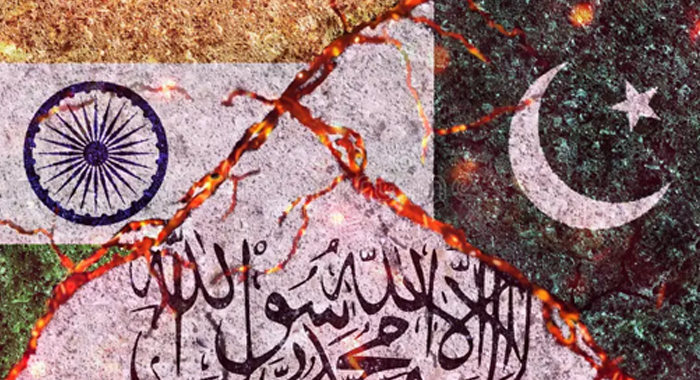Two brazen acts of terrorism a suicide bombing outside Islamabad’s district court and a militant assault on Cadet College Wana have once again laid bare the evolving threats Pakistan faces from within and beyond its borders. The first blast, which claimed twelve lives and injured thirty-six others at the gates of justice in the federal capital, and the second, in which all 650 students and staff were safely rescued after terrorists targeted an institution nurturing the country’s future defenders, are not isolated incidents. They are coordinated messages of fear, designed to shake public confidence, test the state’s resolve, and project that the enemy’s reach now extends to the very heart of Pakistan.
The attack outside Islamabad’s courthouse was not merely a strike on civilians; it was a symbolic assault on the rule of law. The terrorists chose a place that embodies justice and state authority, sending a calculated message that they can challenge the state’s foundations. Their aim was not only to cause death and destruction but to breed uncertainty to make citizens feel unsafe even in the shadow of their judiciary. Such acts are not just terrorism in the physical sense but psychological warfare a campaign to replace trust with fear and unity with doubt.
In Wana, the assault on Cadet College carried an equally sinister symbolism. That the militants targeted an institution where the nation’s future soldiers and leaders are trained reflects a deliberate attempt to undermine Pakistan’s future. Although security forces displayed exceptional bravery in rescuing every cadet and teacher, and in neutralising the attackers, the incident underscored that the enemy now seeks to strike at Pakistan’s educational and defence foundations simultaneously. Where the Islamabad blast sought to shake confidence in the present, the Wana attack aimed to cast fear over the future.
These incidents cannot be viewed in isolation. Pakistan’s security officials have long warned of a resurgence of cross-border terrorism stemming from Afghan soil. The re-emergence of sanctuaries and safe havens across the border, coupled with tacit support from certain elements within Afghanistan, has created an environment where anti-Pakistan militants operate with alarming impunity. It is equally concerning that India’s long-term strategic designs in Afghanistan built through financial investments, intelligence networks, and diplomatic influence are now manifesting as a proxy campaign to destabilise Pakistan from the west.
New Delhi’s ambitions are clear: to keep Pakistan perpetually embroiled in internal conflict, to derail economic recovery, and to undermine strategic projects like the China-Pakistan Economic Corridor (CPEC). By using Afghan territory as a staging ground for subversive activities, India seeks to open a hybrid front that combines terrorism, propaganda, and diplomatic isolation. This nexus between anti-Pakistan militants, rogue Afghan elements, and Indian intelligence operations constitutes one of the gravest security threats facing Pakistan today.
Islamabad’s position remains principled yet firm: Afghanistan must ensure that its soil is not used for terrorism against Pakistan. No sovereign nation can tolerate repeated cross-border attacks under the guise of ideological or political justifications. If provocations continue, Pakistan reserves the right to defend its citizens and territorial integrity through all legal, diplomatic, and, if necessary, defensive military means.
The Afghan leadership must also realise that aligning with India’s anti-Pakistan agenda will yield nothing but instability for Afghanistan itself. History has shown that peace in Kabul is impossible without cooperation with Islamabad. Pakistan has repeatedly demonstrated goodwill hosting millions of Afghan refugees, supporting reconstruction, and advocating for a peaceful, inclusive Afghanistan. Yet that goodwill cannot coexist with hostility.
India’s growing proximity to the current Afghan regime, its open alignment with anti-Muslim forces at home, and its strategic partnership with Israel expose the moral bankruptcy of its regional designs. A government that persecutes its own Muslim citizens and suppresses Kashmiri voices cannot credibly champion regional peace. Its policy toward Pakistan is not one of coexistence but of containment — to stifle Pakistan’s growth and fracture its unity.
The time has come for Pakistan to make hard choices. The nation cannot afford to ignore the serpents within its own folds the facilitators, sympathisers, and apologists of terror who serve foreign interests under domestic cover. The response must be decisive and multidimensional: security, diplomacy, and ideology working in unison. Pakistan’s enemies must know that while they thrive on chaos, this nation thrives on resilience.
The double blow of Islamabad and Wana is a reminder that Pakistan’s fight is not just against armed militants but against a larger design one that seeks to destroy faith, fracture identity, and erode sovereignty. Yet, as history has shown, every time the enemy believes Pakistan is cornered, the nation rises stronger, united, and unyielding. The message from the people and the state is clear: Pakistan will confront terror, expose its patrons, and crush its enablers wherever they may be.





